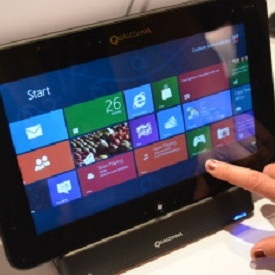
Google Chrome is getting ready for the future of Windows, but Microsoft wants to cut them short. What am I talking about? I am talking about the lack of browser freedom in the upcoming Windows 8. Google assures its users that it will have Google Chrome functional in the upcoming Windows 8, but not on Windows 8 RT operating systems.
Why is this a big issue? Isn’t Google Chrome already working on a Windows environment?
People know that Microsoft has promised that they will provide a “desktop mode” or a way for legacy applications to work on the upcoming Windows 8 operating system. Still, Google Chrome will not want to be termed lazy by not creating a Google Chrome that follows the new Metro style.
The issue is because Microsoft has implemented a code on Windows 8 that treats browsers differently from any other application that may run on the operating system. They said that they are restricting the use of 3rd party browsers, requiring that the browser must be set as a system app for it to work normally. This will require a lot of tweaking and new coding to adapt to the new APIs of Windows 8.
Microsoft is being very aggressive in creating an environment that is focused mainly on Microsoft’s offerings. They are creating a sort of locked system environment; the same accusation that Apple is getting on its Mac and iOS devices. Despite this controlled environment, Google has a way out. It’s entirely up to the user to choose Google Chrome as a system application, and it is not impossible to do so. For the Windows 8 RT though, it’s a whole different story.
Wait, what is Windows RT?
I am sure this has grazed the thoughts of some readers by now. Remember when I talked about Windows 8? They  were planning to implement the use of Windows 8 on a slew of different devices. One of these devices is the tablet. Most tablets are set up to run on ARM architectures. It uses less power, and is completely built for a low processing environment. What this means is that ARM devices last longer ,but are not quite as powerful as your Intel or AMD processors. This makes them perfect for the mobile environment, since you would prefer to use your mobile devices, such as tablets and phones, without frequently gunning for a wall socket.
were planning to implement the use of Windows 8 on a slew of different devices. One of these devices is the tablet. Most tablets are set up to run on ARM architectures. It uses less power, and is completely built for a low processing environment. What this means is that ARM devices last longer ,but are not quite as powerful as your Intel or AMD processors. This makes them perfect for the mobile environment, since you would prefer to use your mobile devices, such as tablets and phones, without frequently gunning for a wall socket.
As you would have figured out, ARM processes things differently than Intel or AMD devices. They require a different way of programming. Programmers who aim to produce apps for both the PC and ARM devices would need to maintain different sets of codes. This makes Windows 8 RT different internally, but aesthetically the same as Windows 8.
So, where is the problem again?
The problem here is that Microsoft is becoming even stricter with regards to Windows 8 RT. They placed restriction on its own developers and made sure that only Microsoft’s own Internet Explorer will be the only browser that will work effectively in this environment. Other browsers may try, but they won’t be able to implement several functions, such as the implementation of plugins.
So, what now?
Google and Mozilla have been very vocal regarding this matter. They seek to ensure that the user has a choice to run other browsers on the Windows 8 RT, as well as allow fair play, by removing the restrictions on 3rd party browsers. They are also banking on a legally binding agreement of Microsoft with the EU pertaining to browser choice. Microsoft argues that this is only for a Windows PC. Well, are they saying Windows RT is not Windows anymore?
We already have a closed system provider for people who like to have other people choose for them. That is what Apple represents. Microsoft’s Windows used to run in the principles of user choice and the availability of choices. No matter how you look at it, Windows RT is still a Windows operating system. It makes no sense to market that they want the “same” Windows experience for both the tablet and the PC. By restricting possibilities and innovation in the tablet environment, they are simply sound like they are lying through their teeth.
As a user of Windows for many years, do you want to have them decide for you which browser you will use? Are you satisfied to stick to Internet Explorer and allow them the monopoly on Windows RT? It really is up to the pressure of the users to decide whether Microsoft can get away with this new model or not.
Source Image: geeknews.gr, pcmag.com
















[…] justifies it and we just have to see whether they will be also user friendly. The rumours about the incompatibility with other browsers in Windows 8 for example was not that […]
Comments are closed.